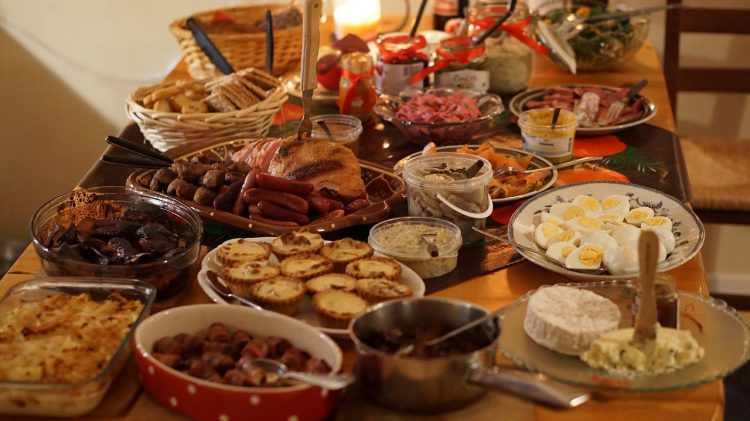
Happy Holidays! Whether you’re the head chef at your holiday gatherings or bringing a casserole to share, food safety is always the most important job in creating a holiday meal. Eating food that’s not cooked or refrigerated correctly could make you and your guests sick. Nobody wants to miss out on the fun because of unsafe food. Keep your holiday festivities healthy and happy this year with these simple food safety steps!
Washing in a Winter Wonderland
Holiday food safety starts with the basics. Be sure to wash your hands, utensils, and cooking surfaces before and after you are in the kitchen. Don’t forget to rinse fresh fruits and vegetables with clean water too!
Where’s the Turkey?
We’ve all been there: you forget to pull the turkey out of the freezer and it’s frozen solid. Panic sets in and drastic measures are taken to unthaw as fast as possible. A little planning can prevent foodborne illness (and heartache). Allow 3 to 4 days for your turkey to thaw in the refrigerator. You could also try running it under water and check it regularly, changing the water so that it does not reach 75 º F or higher.
Timing and Temperature: The Perfect Holiday Pair
Using a thermometer to check the temperature of your dish not only ensures food safety, it can also improve the taste! Avoid over or undercooking by using this safe cooking temperatures chart: eatright.org/holidayhelpertipssheet.
Transporting Safely All the Way
If you’re traveling and bringing cooked food, be sure it arrives bacteria-free to the holiday feast! Use towels or insulated bags with ice packs to keep food hot or cold. Hot food should be at 140º F or above, and cold foods at 41º F or less.
Serving your Feast
Foods left at room temperature can quickly grow harmful bacteria. When serving your holiday spread, be sure that foods are not left out for more than 2 hours.
Enjoying Leftovers
What’s a holiday meal without delicious leftovers, right? Enjoy them safely by making sure foods are fully reheated to a minimum of 165º F.
Happy Holidays!
Written by: Logan, EFNEP student employee